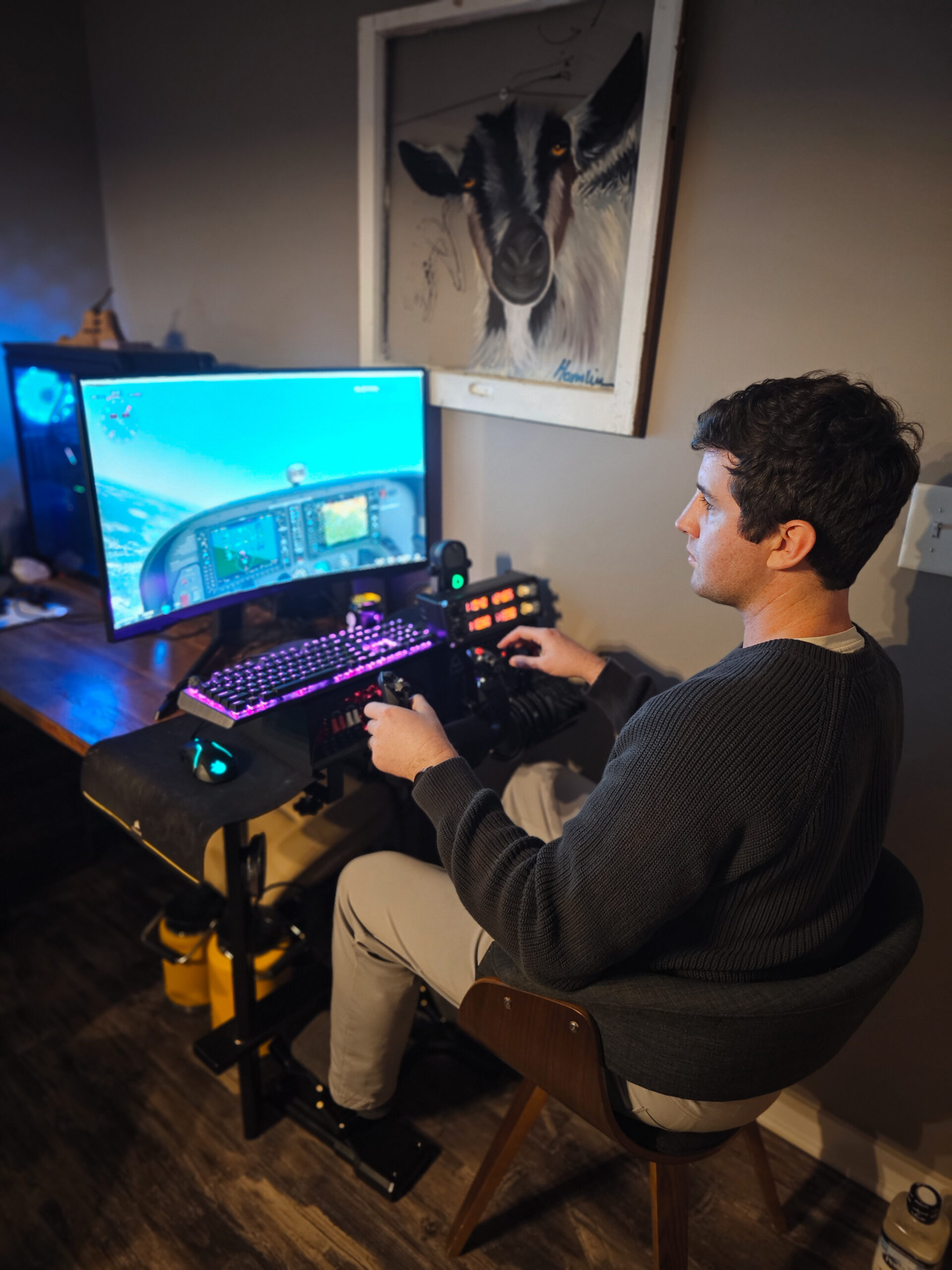If the world of aviation has always fascinated you, the idea of flying high in the skies might be a dream you’re eager to pursue. However, the journey to becoming a pilot can be expensive.
One way to make this journey more accessible and cost-effective is by investing in a flight simulator. So should you invest in a flight simulator? The short answer is yes (if financially feasible).
In this blog post, we’ll explore why a flight simulator is an incredibly valuable resource and will provide tips on choosing the right equipment.

The Advantages of Owning a Flight Simulator
- Cost-Effective Training: Flying lessons can be prohibitively expensive, especially if you’re aiming to go beyond the private pilot stage. If you need a boost in flight time to feel confident, a flight simulator offers a cost-effective alternative to additional flight time, allowing you to get comfortable while only paying for the minimum required flight hours for your rating or certification. FAA-certified Aviation Training Devices (ATD) can also count for some flight hours.
- Confidence in the Cockpit: The cockpit of an aircraft can be overwhelming, filled with numerous instruments and controls. By using a flight simulator, you become more familiar with the layout and functionalities of the cockpit, giving you a head start in your pilot training.
- Airport Familiarization: Flight simulators provide a virtual environment where you can explore and familiarize yourself with various airports. This knowledge is valuable for aspiring pilots, as it enhances their confidence and understanding of airport layouts.
- Skill Development: Practice makes perfect, and a flight simulator allows you to hone your piloting skills. From mastering maneuvers to handling different weather conditions, the simulator provides a safe and controlled space for skill development.
- Lower Stakes and Risks: Unlike real flights, mistakes made in a flight simulator don’t have life-threatening consequences. This lower-stakes environment allows you to take risks, make errors, and learn from them without jeopardizing safety.
- Training Programs: Many flight simulator games, including Microsoft Flight Simulator 2020 and Xplane, come equipped with training programs. These programs guide you through various aspects of flying, making the learning process more structured and informative.
Choosing the Right Equipment
Before diving into the world of flight simulation, it’s essential to invest in the right equipment. Here’s a quick guide:
- Research Your Flight School’s Aircraft: Find out the type of aircraft your flight school uses for training. Invest in equipment that simulates the controls and features of those specific planes.
- Consider the Cost: Building a flight simulator setup doesn’t have to break the bank. While the cost can vary, I was able to assemble a well-equipped setup (excluding the computer) for around $1000 USD.
- Here is the list of products I used and what I paid in June 2023 (prices may be different now):
Helpful Links
For those interested in delving deeper into the flight simulation community, the following subreddits were super valuable to me as I was getting started:
The Limitations
It’s crucial to acknowledge the limitations of flight simulators. Unless you have access to an FAA-certified simulator, the hours logged in a simulator won’t directly count toward your official flight hours. However, the skills and knowledge gained through simulation are invaluable in building a strong foundation for your aviation journey.
Conclusion
Investing in a flight simulator can be a game-changer on your path to becoming a pilot. The advantages, from cost-effective training to developing essential skills and gaining confidence in the cockpit, make it a worthwhile consideration.
While recognizing the importance of choosing the right equipment tailored to your flight school’s aircraft, it’s essential to acknowledge the limitations, particularly in terms of official flight hours.
Nonetheless, the invaluable skills and knowledge acquired through simulation contribute significantly to building a solid foundation for your exciting aviation journey. So, if the skies beckon, a well-equipped flight simulator might just be the perfect companion on your flight training adventure.
What do you think? Did you use a flight simulator to support your training journey? Have a flight sim story? Let us know your thoughts in the comments below!

